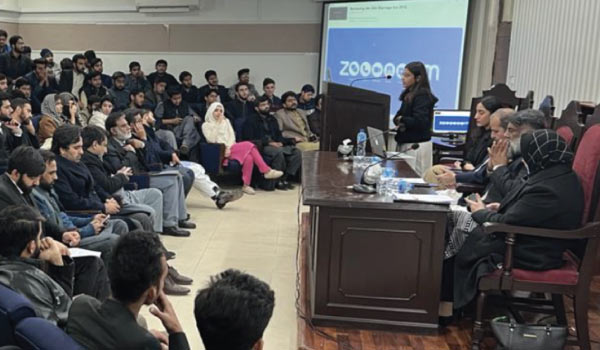ARTICLES
Status of Refugees Law in Pakistan
WRITTEN BY
Advocate Ateeb Ali
DATE
25 October 2020

The global legal system for the protection of refugees, whose foundation is given by the 1951 United Nations (U.N) Convention Relating to the Status of Refugees (1951 Convention) and its Protocol of 1967, endeavours to ensure against such infringement.
Pakistan has not ratified either the 1951 Convention Relating to the Status of Refugees or its 1967 Protocol and has also not enacted any national legislation for the protection of refugees while it is hosting such a large number of Afghan citizens on its territory therefore the legal position of Afghans refugees living in Pakistan isn’t clear.
Regardless, it remains bound by a tripartite agreement executed with Afghanistan and United Nations High Commission for Refugees (UNHCR) in 2003, which while facilitating repatriation, accords Afghan refugees rights and privileges.
According to the 2003 tripartite agreement, Pakistan is bound by norms of customary international law relating to the treatment and protection of refugees, including the principle of non-refoulement which prevents the return or expulsion of a person to another state where such person would be in danger or would fear persecution. This principle has also been codified in Article 2(1) of the Convention Against Torture, ratified by Pakistan. Importantly, refugees are subject to the asylum framework established by UNHCR under its own Statute and the 1993 Cooperation Agreement between the Government of Pakistan and UNHCR.
The Government of Pakistan handles refugee matters administratively in accordance with the internal national and mutual political and humanitarian concerns. UNHCR has no formal status in Pakistan, and it has been allowed to bargain just with the Afghan refugees after the Soviet Union attack on Afghanistan. The Ministry of States and Frontier Regions (SAFRON), which manages Afghan Refugees in Pakistan, normally allows inexhaustible transitory residence cards to UNHCR registered Afghan refugees. The official strategy of the Government of Pakistan is that every Afghan refugee under the UNHCR mandate is permitted to impermanent shelter in Pakistan. Further, Pakistan does not offer permanent resettlement to displaced people allowed impermanent shelter somewhere else.
As Pakistan has no refugee related law at national level nor is a signatory to the 1951 Refugee Convention or its Protocol of 1967; but despite all these obstacles it has welcomed the refugees from Afghanistan after the Russian aggression. During their stay here in Pakistan, these refugees have faced various problems due to the non- existence of the relevant laws and have been treated under the Foreigner’s Act of 1946, which did not apply to them. Pakistan hosts some 2.4 million Afghan refugees in its territory and has provided adequate protection to the refugees from Afghanistan during their stay in Pakistan through generous administrative measures. But only administrative arrangements will not sort out the refugee issue. Proper legislation at the national level for the refugees by considering all the available options is the need of the hour.



